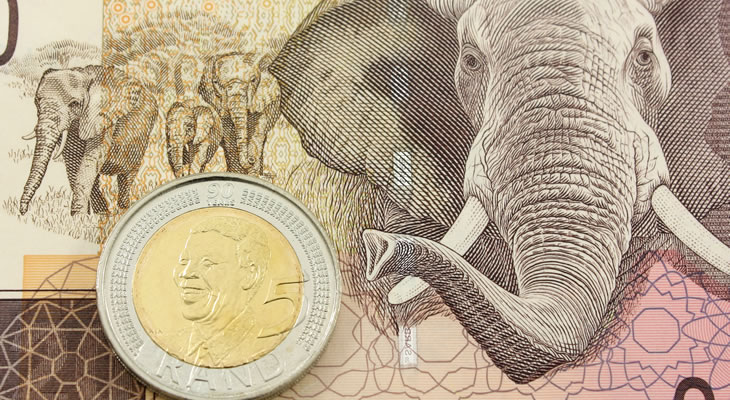Pound to South African Rand Exchange Rate Struggles to Recover despite Decent UK Data
The Pound Sterling to South African Rand (GBP/ZAR) exchange rate has been under pressure this week. This is despite the Pound’s (GBP) attempts to recover from lows. Looking ahead, GBP/ZAR could fall even lower if the Rand (ZAR) outlook shows more signs of recovery.
Since opening this week at the level of 21.31, GBP/ZAR has been trending with a downside bias. A brief jump higher in the middle of the week on Pound strength was short-lived, as the Rand continued to gain momentum.
This morning, GBP/ZAR touched on a low of 21.08. This was the weakest level for GBP/ZAR in around three weeks, since early-June. At the time of writing, GBP/ZAR was trending just above those highs.
Sterling weakness is making GBP/ZAR gains difficult. However, if the global coronavirus outlook continues to worsen, investors may have less reason to buy the relatively risky South African Rand going forwards as well.
Pound (GBP) Exchange Rates Struggle as PMIs Fail to Improve Outlook
This morning saw the publication of Britain’s final June services and composite PMI results.
The data came in fairly close to projections, but were just slightly higher than expected. Services printed at 47.1 with the composite print rising to 47.7. Overall, these figures showed that Britain’s economic activity contracted much less in June than in May.
However, uncertainty over Britain’s economic activity persists. According to Duncan Brock, Group Director at the Chartered Institute of Procurement & Supply:
‘Some firms are resorting to heavy discounting, others accelerating innovative solutions to change their operating model to stay in business. For others, the decision to shed jobs may be the only solution as the fight for survival continues and the UK economy grits its teeth for the months ahead.’
South African Rand (ZAR) Exchange Rate Benefitting from Data and Risk-Appetite
Despite rising fears of a ‘second wave’ of coronavirus infections, and infections surging in the US, this week’s strong data from major economies has kept investors eager to take risks.
The latest US Non-Farm Payroll report impressed investors and bolstered risk-sentiment. This helped currencies correlated to risk, like the Rand, to keep trading strongly.
Weaker prices of oil are also helping the Rand. As South Africa imports oil, weaker oil prices make the Rand more appealing.
On top of this though, the latest domestic South African data has been fairly strong. South Africa’s latest private sector activity and trade stats both impressed investors.
Still, concerns remain that impacts could be felt in later data. According to the South African Reserve Bank’s (SARB) latest trade balance report:
‘With the domestic lockdown restrictions only effective as from late March, the effects of the COVID-19 pandemic on South Africa’s imports and exports were still limited in the first quarter of 2020,’
Pound to South African Rand (GBP/ZAR) Exchange Rate Could Recover if ‘Second Wave’ Worsens
Concerns over how Britain and South Africa’s economies will be damaged by the coronavirus pandemic going forward continue to cast a shadow over the Pound to South African Rand (GBP/ZAR) exchange rate outlook.
Britain’s handling of the pandemic continues to see criticism and analysts predict there may be more months of weakness ahead amid a high infection rate. Meanwhile, data showing South Africa’s economy has been hard hit is still expected.
However, the South African Rand remains more volatile to shifts in risk-sentiment overall.
If the global coronavirus outlook continues to worsen, the Rand could shed ground. This may be the best chance GBP/ZAR has of advancing any time soon.
The Pound outlook also remains dampened by Brexit concerns. As July unfolds, Brexit is likely to be a persistent focus of the Pound to South African Rand (GBP/ZAR) exchange rate as well.


Comments are closed.